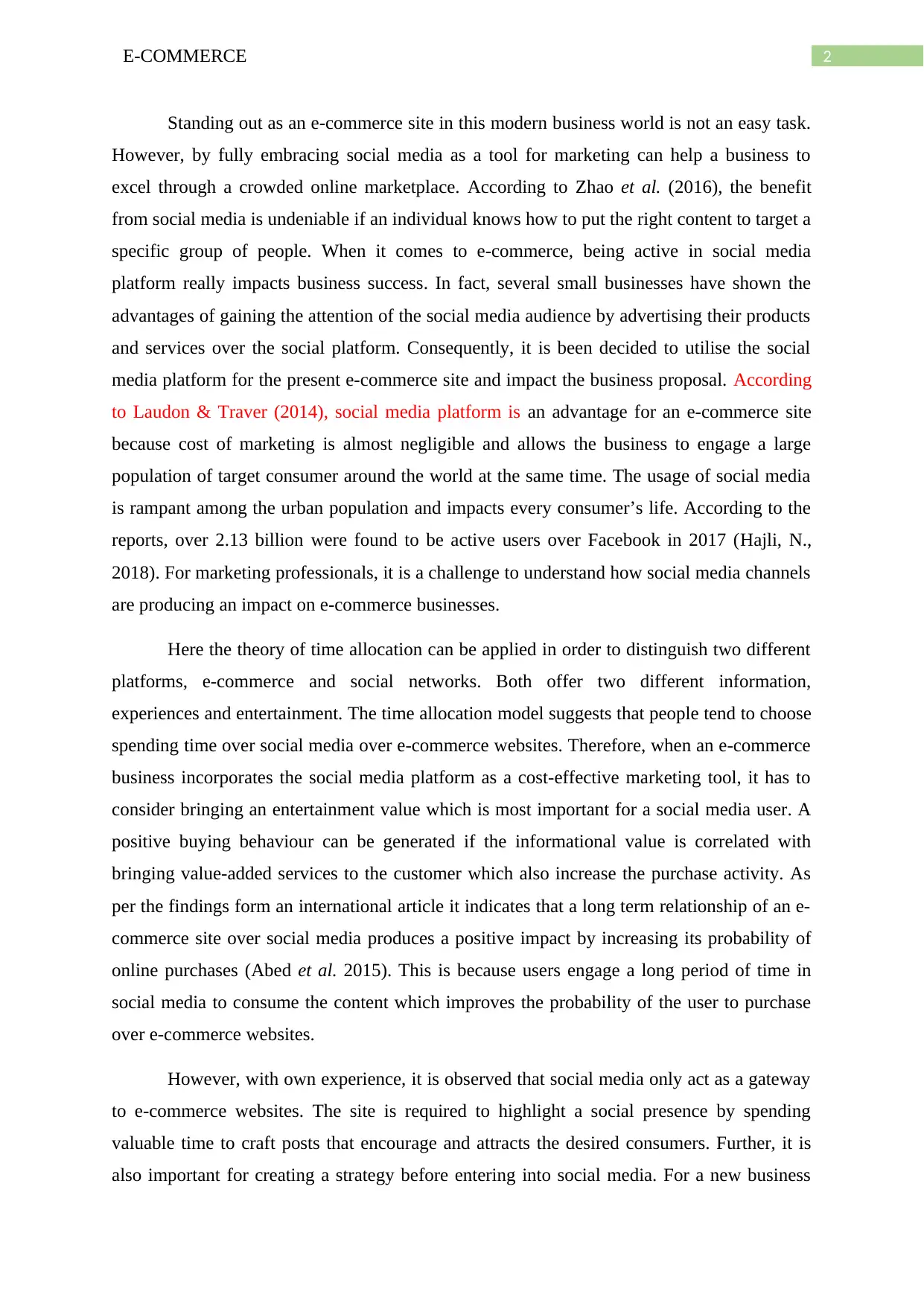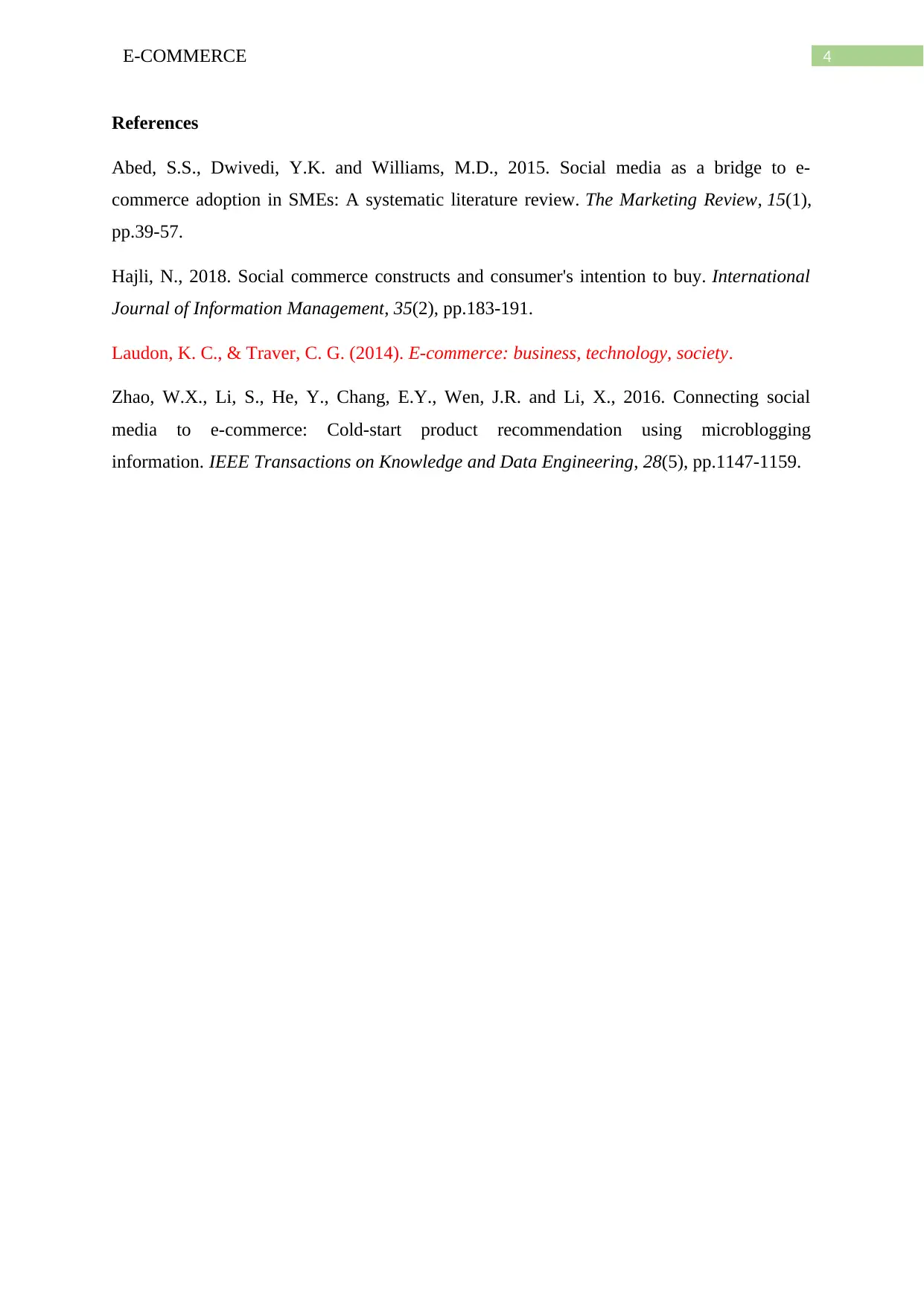E-commerce: Social Media Marketing Strategy and Business Impact Report
VerifiedAdded on 2023/04/20
|4
|745
|210
Report
AI Summary
This report examines the crucial role of social media in the success of e-commerce businesses. It emphasizes that in today's competitive online marketplace, leveraging social media for marketing is essential. The report discusses the advantages of social media, such as cost-effective marketing and the ability to engage a large global audience. It explores the time allocation model, highlighting the importance of providing entertainment value to capture users' attention. Additionally, the report analyzes how long-term engagement on social media platforms positively impacts online purchase behavior. It recommends a strategic approach, including starting with a few channels, maintaining a consistent brand voice, and focusing on high-quality product information to craft a cohesive social media presence. The report references key academic articles that support these strategies and concludes that social media is a vital gateway to driving traffic and sales for e-commerce sites.
1 out of 4











![[object Object]](/_next/static/media/star-bottom.7253800d.svg)